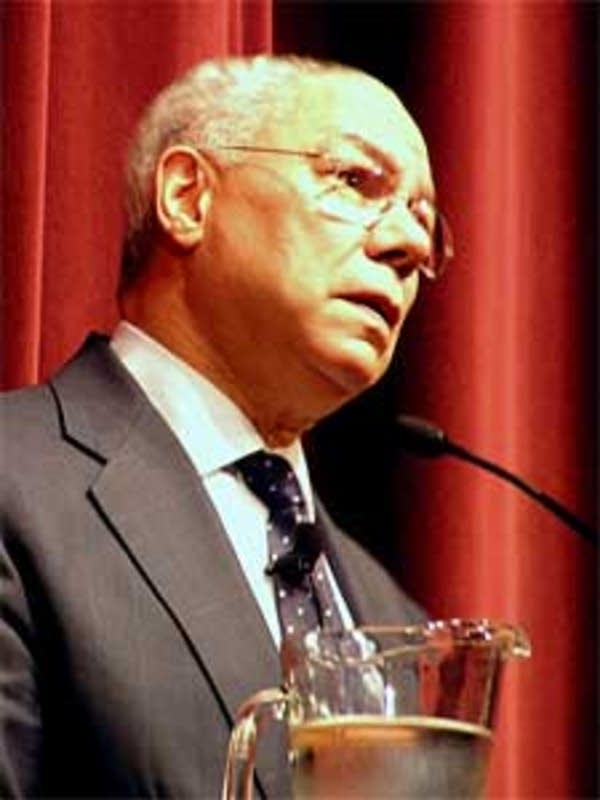Powell says U.S. was "dead wrong" about Iraq's weapons of mass destruction
Go Deeper.
Create an account or log in to save stories.
Like this?
Thanks for liking this story! We have added it to a list of your favorite stories.

More than 4000 people in the U of M's Northrup auditorium gave Powell a thunderous standing ovation as he was introduced.
In several other recent speeches and interviews Powell has called his appearance before the United Nations security council in February of 2003 the low point in his 50 years of public service. That was the presentation where Powell laid out the administration's rationale for invading Iraq.
"The facts and Iraq's behavior show that Saddam Hussein and his regime are concealing their efforts to produce more weapons of mass destruction," Powell told the U.N.
Powell told the university audience that he and 50 intelligence people spent four days in a conference room at the CIA going over the best information they had about the weapons held by the Saddam regime.
Turn Up Your Support
MPR News helps you turn down the noise and build shared understanding. Turn up your support for this public resource and keep trusted journalism accessible to all.
Powell has held back from flatly admitting the government made a mistake in building the U. S. case for going to war with Iraq. He said the U.S. was right about Saddam's intentions and behavior, but "dead wrong" about the stockpiles of weapons of mass destruction.
In another departure from past public comments Powell talked at length about U.S. foreign policy problems. He ranked Afghanistan and Iraq as one and two.
Powell didn't name President Bush but he said comments by leaders that the U.S. must stay the course in Iraq no longer work. His admirers say Powell has held back from directly criticizing President Bush as Commander-in-Chief because of Powell's military background.
Washington Post reporter Bob Woodward says in his just released book on the Bush administration, "State of Denial" that Powell privately expressed to the President his misgivings about the consequences of not committing enough troops to Iraq.
Powell's public remarks are becoming far more pointed.
When the Bush administration asked Congress to modify portions of the 57-year old Geneva Convention prohibiting the torture of prisoners Powell objected. Two weeks ago he sent a letter to members of Congress.
"The world is beginning to doubt the moral basis of our fight against terrorism. To redefine (a portion of the Geneva agreement) would add to those doubts. Furthermore, it would put our own troops at risk," he wrote.
In his remarks at the University of Minnesota Powell moved closer to direct criticism of the of the Bush administration.
He says the world's reservoir of understanding and respect for the United States is deep but, "we're having problems with how we're talking to the world and we're having problems with some personalities we have in public life."
Powell says our Middle East policy is fueling misunderstanding around the world. He says his wish is for an independent Palestinian state that can coexist alongside Israel.
After his speech at the University of Minnesota Powell visited a south Minneapolis neighborhood to visit a youth activities center named after him.



